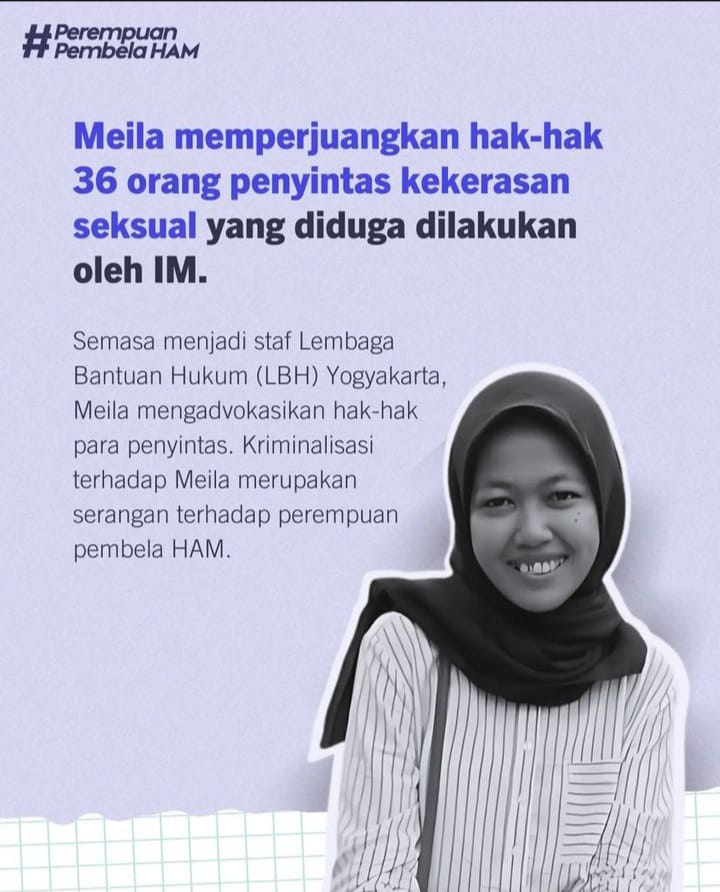The Police charged Meila for defamation re. Article 27 Point 3 in conjunction to Article 45 Point 3 of the Information and Electronic Transaction Law. The Coalition believed that the charge was an attempt to criminalse Meila and a serious attack on women human rights defenders and victim of sexual violence.
“The charge, by the Yogyakarta Police, was a serious attack on women human rights defender and victims of sexual violence, and constituted a bad precedent for all victims of sexual violence in Indonesia,” said M. Isnur, the chairperson of YLBHI, as cited in Tirto.id on Saturday (17/2024).
The violence against victims whom the YLBHI lawyer defended truly happened. It was a fact. This was consistent with the Decision Letter issued by the Rector of Universitas Islam Indonesia No. 327/SK-REK/DPK/2020) dated 12 May 2020 re. Retraction of the Most Outstanding Student at Universitas Islam Indonesia in 2015 to Ibrahim Malik and case decision No. 17/G/2020/PTUN.YK that had fixed legal standing. The sexual crime committed by the perpetrator had serious impacts on victim.
In 2020, the University considered it as a serious case and followed it up by establishing a fact-finding team and another team to provide psychological accompaniment to victim, when necessary, and to appoint the Legal Aid Unit of the Law Faculty at the University to facilitate victim should the victims wanted to pursue the case through a legal avenue to defend her rights. The University also supported victim’s effort to contact YLBH and to establish communication.
Article 27 Point 3 re. Article 45 Point 3 of the Information and Electronic Transaction Law was a “rubber article” often used to criminalise victims. There had been many appeals and demands for this article to be scrapped, but the authority who made the law kept it in place. Today, some restrictions of its use was being put in place by the Constitutional Court. The Constitutional Court decision re. Defamation required strict stipulations as made clear in the Joint Decision for the implementation of the Information and Electronic Transaction Law. It clearly stipulated that it was not a defamation when a person presented fact(s) about what other people were doing.
The Constitutional Court Decision No, 50/PUU-VV2008 Year 2008 stated that it was not defamation as stipulated in Article 27 Point 3 of the Information and Electronic Transaction Law, if the content was transmitted, distributed and/or made was a judgement, a results of an evaluation or a fact. This was made clear in the Joint Decision on the Guideline for the Implementation of certain articles in Law No. 19 Year 2018 on Changes to Law No. 11 Year 2008 on Information and Electronic Transaction Law signed by the Police Chief, the Attorney General and the Minister for Communication and Information.
Criminalising women human rights defender who was a public lawyer for YLBH was not just an attack to the independence as law enforcement but also a threat to legal aid organisation. (Ast)












